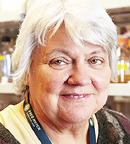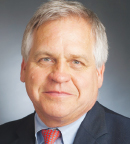
We are moving the needle. Hopefully, we will eventually get coverage that’s high enough to see a reduction in oropharyngeal cancer.— Denise A. Galloway, PhD
Tweet this quote
Denise A. Galloway, PhD, Associate Director, Human Biology Division, Fred Hutchinson Cancer Research Center, Seattle, whose research focus is human papillomavirus (HPV), told The ASCO Post that these findings provide new data for the field. “I can’t think of a large study of oral HPV infection in men, but this study confirms a long-standing study in women that was conducted in Costa Rica with the National Cancer Institute,” she said.
That study included 5,840 women between the ages of 18 and 25 years for whom oral specimens were available after randomization to the HPV16/18 vaccine or hepatitis A vaccine as control.1 Approximately 4 years after vaccination, 15 prevalent HPV16/18 infections were observed among controls vs 1 one in the vaccine group, for an estimated vaccine efficacy of 93.3%.
Room for Improvement
“We know that one of the risk factors for oropharyngeal cancer is persistent HPV infection, and showing that we can reduce this with a vaccine is a very important finding,” Dr. Galloway commented. Although protection appears robust, the vaccination rate of 6% among men was disappointing, she added. “The question is, how do we improve this?”
She acknowledged, however, that since the period of this study (2011–2014), vaccination rates have risen considerably. In 2015, nearly 50% of men had received at least one dose and 28% had received three doses; in women, these rates were 63% and 42%. “We are moving the needle,” Dr. Galloway noted. “Hopefully, we will eventually get coverage that’s high enough to see a reduction in oropharyngeal cancer, but the median age at cancer diagnosis is 50, so we’ll need to wait a long time to see this.”

Bruce E. Johnson, MD
Bruce E. Johnson, MD, ASCO President and Professor of Medicine at Harvard Medical School, Boston, agreed. “The hope is that vaccination will also curb rising rates of HPV-related oral and genital cancers, which are hard to treat. This study confirms that the HPV vaccine can prevent oral HPV infections, but we know it only works if it’s used.” ■
Disclosure: Drs. Galloway and Johnson reported no conflicts of interest.
Reference

